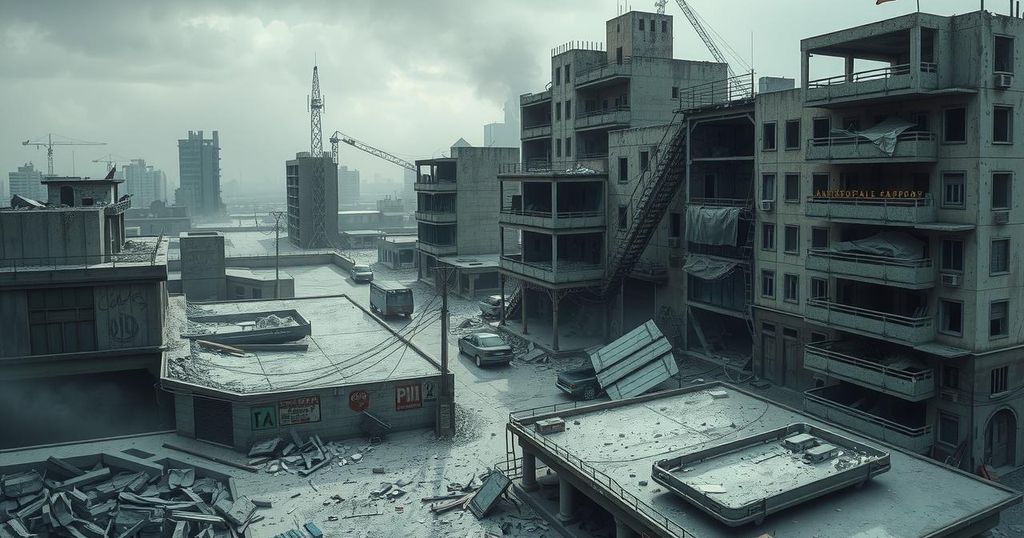The conflict in Sudan, particularly in Khartoum, has caused severe humanitarian crises, with local responders attempting to provide necessary aid amidst violence. Recent military control by the SAF raises hopes for stability, but challenges remain, including the entrenched RSF and significant civilian needs. International assistance is urgently required to address the escalating situation.
Sudan’s ongoing conflict has led to significant humanitarian crises and instability, particularly in Khartoum. Since the fighting escalated in April 2023, the city has become largely deserted, with its infrastructure severely damaged. Mathilde Vu, a local aid worker, highlights the dire situation: the humanitarian response relies largely on grassroots efforts, as local responders strive to help despite minimal resources.
These local efforts are vulnerable, with reports indicating at least ten local responders have been killed amid recent escalations. The Sudanese Armed Forces (SAF) have regained control of key locations, including the presidential palace and central bank, but it is uncertain if these military victories will foster long-term stability.
Abiol Lual Deng warns against viewing these military gains as a sign of resolution, noting that many lives have been lost not just to violence, but also due to factors like starvation and disease. Although aid might make its way back into the city, the sheer scale of human need remains overwhelming—two-thirds of Sudan’s population requires assistance.
The severe destruction of Khartoum’s infrastructure further complicates recovery, impacting economic stability across Sudan. The SAF’s continued control will depend on their ability to restore essential services and governance. Many displaced citizens are considering returning to their homes, despite the absence of safety and basic amenities, revealing a pressing need for civil society intervention.
The RSF, which has retreated to Darfur, continues to establish itself as a parallel authority, complicating hopes for a peaceful resolution. Analysts note the RSF’s embedded power in regional dynamics may perpetuate conflict rather than lead to stability. Dallia Abdelmoniem asserts that the SAF’s might may embolden it further, leading to a pursuit of purely military solutions.
In regions like Darfur, dire humanitarian conditions persist, with families attempting perilous escapes to avoid arrest or violence. Access for aid organizations remains limited, with both factions obstructing assistance. However, groups like the International Committee of the Red Cross and Médecins Sans Frontières continue to operate, advocating for humanitarian neutrality.
International response to Sudan’s conflict has been critiqued as inadequate, and Mathilde Vu emphasizes the urgent necessity of humanitarian aid regardless of political resolutions. Concerns about internal divisions within the SAF also abound; leadership fractures may arise, creating further instability. Moreover, the geopolitical implications of Sudan’s war suggest a complex interplay of resources and external influences, making resolution challenging.
At present, Khartoum stands in a state of uncertainty. Although the SAF has reclaimed the city, true peace remains elusive, and the humanitarian crisis worsens. As fighting continues nationwide, the pressing need for international engagement and support for civilians cannot be understated.
The situation in Sudan remains critical, with Khartoum’s infrastructure in ruins and humanitarian needs skyrocketing. Local responders play a vital role amidst this crisis, but their efforts are under threat. The SAF’s military gains do not guarantee peace or stability, as the ongoing influence of the RSF complicates the environment. A significant international response is essential to address the humanitarian crises and provide necessary support to civilians affected by the conflict.
Original Source: www.arabnews.pk






